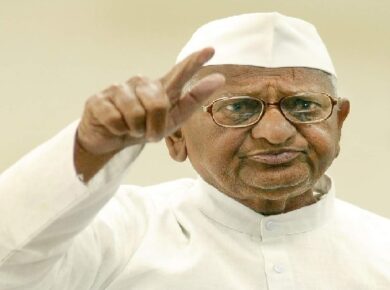The Union Public Service Commission (UPSC) has long been regarded as one of the most prestigious and competitive institutions in India, responsible for conducting exams to recruit individuals for various administrative positions in the country. Every year, thousands of aspirants aim to secure a position through the UPSC Civil Services Examination (CSE), but many face challenges, including age-related restrictions. In a significant development for aspiring candidates, the UPSC Age Limit Increased to 35, providing a new opportunity for those who are nearing the upper limit to compete for these coveted positions. This article delves into the details of this change and the implications it holds for prospective candidates.
The Previous UPSC Age Limit Increased to 35 and the Need for Change
Until recently, the UPSC age limit for general category candidates was 32 years, with some relaxation provided for reserved categories. This age limit often posed a significant hurdle for many individuals, especially those who started their preparation later or had a gap in their education.
The age criteria for the UPSC exam were as follows:
- General category: 32 years
- OBC (Other Backward Classes): 35 years
- SC/ST (Scheduled Castes and Scheduled Tribes): 37 years
- Physically Disabled: 42 years
- Defense Services Personnel: 35 years
Many aspirants, especially those from the general category, found it challenging to meet the strict age limit. After years of feedback and growing demands for a more flexible age limit, the UPSC age limit increase to 35 comes as a welcome change for numerous aspirants.
Reasons Behind the Age Limit Increase
The decision to raise the UPSC age limit stems from several reasons:
- Encouraging Late Starters: Many individuals, particularly those from rural areas or with financial constraints, face challenges in beginning their UPSC preparation early. The increased age limit allows those who are starting their preparation later in life to participate in the examination.
- Addressing Concerns of Aspiring Candidates: The age limit was often seen as a barrier, especially for those who faced setbacks in their earlier attempts or had other personal commitments that delayed their preparation. The increase gives these candidates another chance.
- Inclusive Opportunities for All: The change aims to ensure that everyone, regardless of when they start their journey, has an equal opportunity to succeed and contribute to India’s civil services. It reflects the changing needs of society and the importance of allowing people to pursue their dreams at different stages of life.
Impact of the UPSC Age Limit Increased to 35
The age limit increase to 35 has several implications, both positive and practical. Here are some key aspects:
1. Expanded Pool of Candidates
With the new age limit, the pool of candidates eligible to sit for the UPSC Civil Services Examination is now significantly larger. This means that more aspirants can try their hand at the examination, which may lead to increased competition. While this may make the examination more challenging, it also reflects a broadening of opportunities.
2. Improved Opportunities for Those in the 30-35 Age Group
Candidates in the 30-35 age group who had previously been on the cusp of eligibility can now apply for the UPSC exam. This group includes individuals who may have gained work experience, skills, or academic qualifications that make them better prepared for a career in the civil services.
3. Boost for Working Professionals
Many working professionals, especially those in their early 30s, now have the chance to attempt the UPSC examination. The extension of the age limit allows these individuals to juggle work and preparation without the looming pressure of a tight age deadline.
4. Increased Diversity in Civil Services
With the inclusion of more aspirants, the civil services are likely to see a more diverse range of candidates, including individuals with different career backgrounds and perspectives. This is expected to benefit India’s administrative system, bringing in new ideas and experiences.
5. Better Prepared Candidates
Older candidates tend to be more mature and better prepared, often having a more solid understanding of their own capabilities and limitations. The added age limit enables individuals with greater life experience to step into the civil services, which could benefit both the candidates and the country.
Key Changes in the UPSC Age Limit
The change in the UPSC age limit has specific details that are important for candidates to understand:
- General Category Candidates: The age limit has been increased from 32 years to 35 years.
- Other Backward Classes (OBC): The age relaxation for OBC candidates remains at 3 years, but they are now eligible up to 38 years.
- Scheduled Castes (SC)/Scheduled Tribes (ST): The age relaxation for SC/ST candidates remains at 5 years, meaning they can now apply until 42 years.
- Persons with Benchmark Disabilities: This category continues to enjoy an additional relaxation of 10 years, making their upper age limit 45 years.
UPSC Age Relaxation for Other Categories
In addition to the general increase, there are also category-based age relaxations that remain in place:
- Defense Personnel: Candidates who have served in the armed forces and are applying for civil services positions can enjoy a relaxation of 5 years.
- Ex-Servicemen: Candidates who have retired from the armed forces can now apply until 35 years under the OBC category and 37 years under the SC/ST category.
- Physically Disabled Candidates: These candidates are entitled to a relaxation of 10 years, allowing them to apply until 42 years.
What Does This Mean for Future UPSC Aspirants?
With the UPSC age limit raised, aspirants can now have more time to prepare for the UPSC Civil Services Examination. However, this also means that candidates will have to put in extra effort to stand out in an increasingly competitive environment. Here’s what future aspirants need to keep in mind:
1. Better Time Management
The extended age limit means more candidates will likely attempt the examination. Aspiring candidates should focus on time management and systematic preparation to ensure they stay ahead of the competition.
2. Emphasis on Experience
Candidates with more work experience and maturity will have an edge. They can leverage their past work, knowledge, and skills to enhance their preparation and performance.
3. Early Preparation Still Key
While the age limit has increased, it remains essential to start preparing for the exam early. The earlier you begin, the better your chances of succeeding.
4. Stay Updated on Age Relaxation Policies
It’s important to keep up with any future changes in the age relaxation policies and eligibility requirements. Staying informed can help you plan your strategy more effectively.
The last line of this article
The increase in the UPSC age limit to 35 has opened up new opportunities for many aspiring candidates. This change is a positive step towards inclusivity and provides flexibility for those who are older and seeking to enter the prestigious civil services. While it brings new challenges in terms of competition, it also makes the examination more accessible and fair for a wider range of candidates.
For those preparing for the UPSC CSE, this is an important milestone, as it broadens the horizon for individuals of different age groups, allowing them to pursue their dreams of serving the nation.










